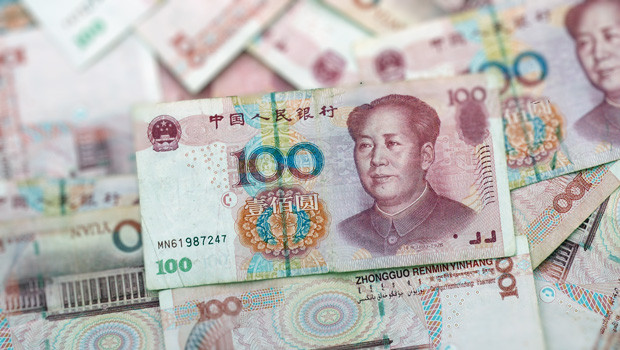Asia report: Chinese markets finish bumper week in the green

Asian markets showed a strong weekly performance on Friday, driven largely by a rally in Chinese stocks, which posted their best weekly gains since 2008.
The surge came after the People’s Bank of China implemented a series of stimulus measures aimed at revitalising the economy.
It cut its seven-day reverse repurchase rate to 1.5% from 1.7% and lowered the reserve requirement ratio for banks by 50 basis points.
China's industrial profit data for August declined, however, after a year-on-year increase observed in July.
“Asian stock markets are primarily trading higher, as traders continue to place bets on the US Federal Reserve's potential for further interest rate reductions, and the Chinese government's potential for additional stimulus measures to stimulate growth in the world's second largest economy,” said TickMill’s Patrick Munnellly.
“This is in line with the generally positive signals from Wall Street overnight.
“It appears that the powers that be in China are finally acknowledging the economic realities of a floundering economy and are taking the necessary steps to satisfy market expectations of stimulus support, rate cuts, RRR cuts, measures to support the stock markets, and additional fiscal support are now on the table.”
Munnelly said deflated Chinese shares were currently on course for their most successful week since 2008, with blue-chips rising on Friday and projected to achieve a 15% weekly advance.
“The Hang Seng index in Hong Kong is on the brink of its most significant weekly increase since 1998, with a projected increase of nearly 13%.
“There was a positive week for nearly every market that is associated with China.”
Chinese stocks lead broad gains across region
Hong Kong’s Hang Seng Index led regional gains, soaring 12.75% over the week, its strongest performance since February 1998.
The index closed at 20,632.30, buoyed by significant rallies in stocks such as WuXi AppTec, which jumped 23.86%, and New World Development, up 21.61%.
Longfor Properties also saw a substantial gain of 16.47%.
Japanese equities saw moderate gains, with the Nikkei 225 advancing 2.32% to 39,829.56, and the Topix index rising 0.73% to 2,740.94.
Tech company Lasertec led the charge on Tokyo’s benchmark, surging 8.19%, followed by retail giant Isetan Mitsukoshi and engineering firm Ebara, which climbed 7.09% and 6.77%, respectively.
In mainland China, the Shanghai Composite increased by 2.88% to 3,087.53, while the Shenzhen Component soared 6.71% to 9,514.86.
Top performers in Shanghai included Jilin Yatai Group, which rose 10.26%, and Cinda Real Estate, which gained 10.08%.
South Korea’s Kospi 100 index lagged behind, falling 0.71% to 2,667.43, as major companies like Samsung Engineering, HD Korea Shipbuilding & Offshore Engineering, and Hanmi Pharm faced significant declines of over 7% each.
Australia’s S&P/ASX 200 inched up by 0.1% to 8,212.20, driven by gains in resource-related stocks.
Mineral Resources surged 13.94%, while A2 Milk Company and Liontown Resources advanced 8.89% and 8.28%, respectively.
New Zealand’s S&P/NZX 50 index dipped 0.27% to 12,457.41, weighed down by declines in Fletcher Building and healthcare stocks Oceania Healthcare and Ryman Healthcare, which dropped by more than 4% each.
In currency markets, the dollar was last down 1.15% on the yen to trade at JPY 143.14.
The greenback was stronger on its antipodean counterparts, however, rising 0.09% against the Aussie to AUD 1.4514, and advancing 0.18% on the Kiwi, changing hands at NZD 1.5832.
Oil prices were relatively stable, with Brent crude futures last down 0.13% on ICE at $71.51 per barrel, and the NYMEX quote for West Texas Intermediate slipping 0.12% to $67.59.
PBoC implements fresh easing measures, inflation slows in Tokyo
In economic news, the People’s Bank of China implemented a series of monetary easing measures, reducing its seven-day reverse repurchase rate from 1.7% to 1.5% and lowering the reserve requirement ratio for financial institutions by 0.5 percentage points.
The central bank said the actions were aimed at fostering a supportive monetary environment to facilitate stable economic growth and high-quality development.
At the same time, China's industrial profit data for August revealed a sharp 17.8% decline compared to the same month last year, a significant reversal from the 4.1% increase recorded in July, which was the fastest growth in five months.
Year-to-date, profits at large industrial firms had edged up by 0.5% to CNY 4.65trn - a marked slowdown from the 3.6% growth seen in the first seven months of the year.
Investors would need to wait for future data releases to gauge the impact of the recent stimulus measures, however.
Elsewhere, investors in Japan were digesting the latest inflation trends in Tokyo, often viewed as a precursor to national data.
The city’s headline inflation rate eased to 2.2% in September, down from 2.6% in August.
Core inflation, excluding fresh food prices, matched economists' expectations at 2%, down from 2.4% in the prior month.
Reporting by Josh White for Sharecast.com.